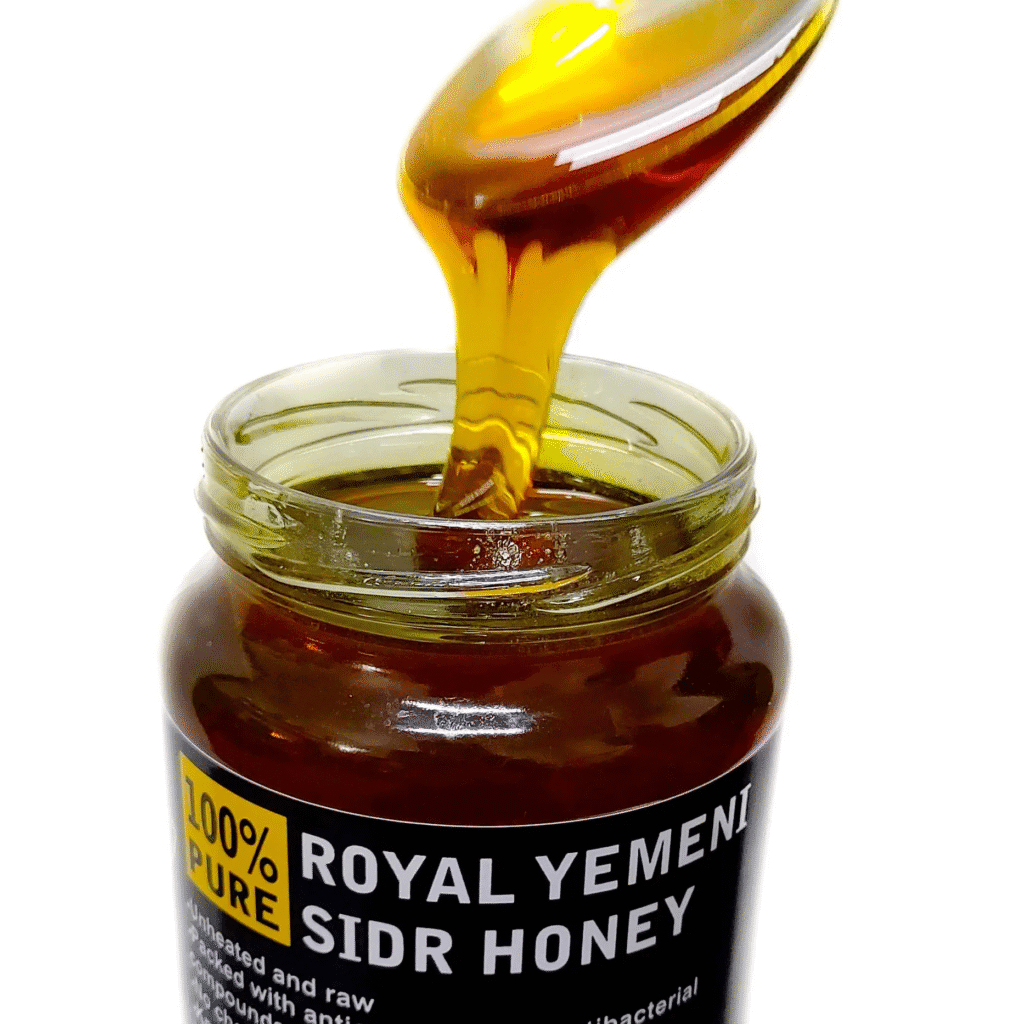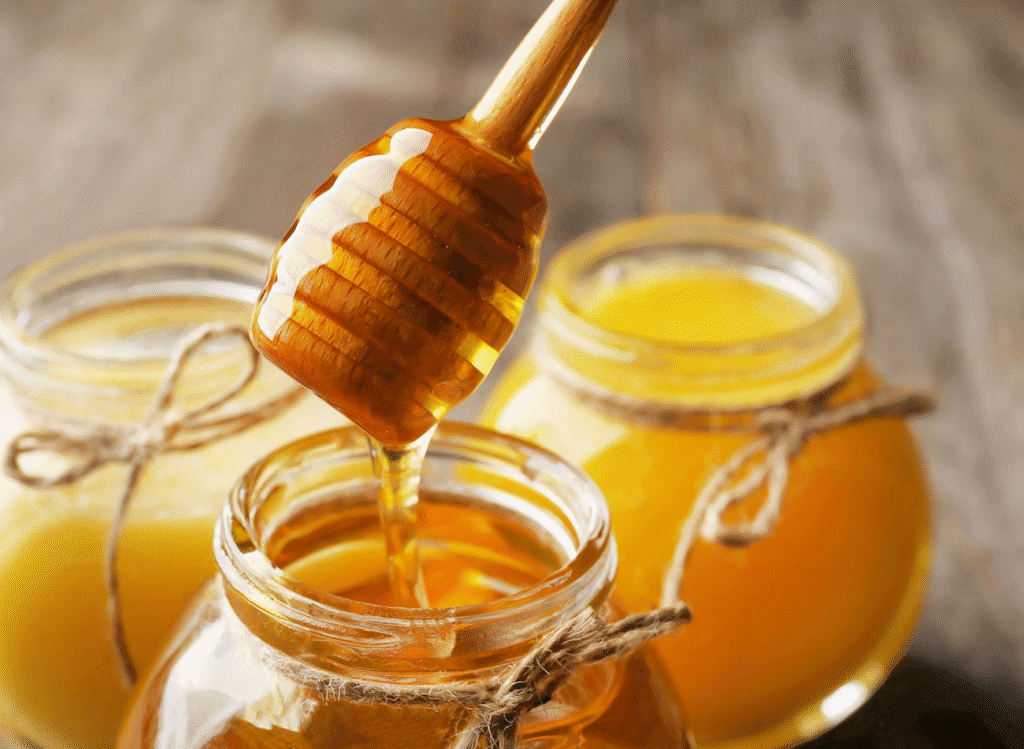Discover the most powerful medicinal honey varieties used in natural healing. Learn their health benefits, unique properties, and how to use honey as nature’s sweetest medicine.
Introduction
Honey has been revered for centuries not only as a delicious natural sweetener but also as a potent medicinal remedy. Modern science has confirmed what ancient healers always knew—some honey varieties have extraordinary therapeutic properties that go beyond basic nutrition. From antibacterial action to wound healing and immune support, medicinal honey plays a vital role in natural medicine today.
This guide explores the top medicinal honey varieties, their unique health benefits, origins, and how to choose the right one for your wellness needs.
1. Manuka Honey (Leptospermum scoparium)

Origin: New Zealand and Australia
Key Medicinal Properties:
- Antibacterial: Contains methylglyoxal (MGO), a powerful antibacterial compound.
- Wound Healing: Promotes tissue regeneration and reduces inflammation.
- Digestive Health: Helps with ulcers, acid reflux, and other GI issues.
Common Uses:
- Topical treatment for wounds, burns, and ulcers.
- Oral consumption to soothe sore throats and digestive discomfort.
- Immune-boosting supplement.
2. Sidr Honey (Ziziphus spina-christi)

Origin: Yemen, parts of Pakistan and Saudi Arabia
Key Medicinal Properties:
- Antiviral and Antifungal: Effective against various pathogens.
- Liver Detoxification: Traditionally used to support liver health.
- High Antioxidant Levels: Protects cells from oxidative stress.
Common Uses:
- Treatment for liver disorders, infections, and infertility.
- Boosts general vitality and energy.
3. Tualang Honey

Origin: Malaysia, from the tualang tree (Koompassia excelsa)
Key Medicinal Properties:
- Anticancer Properties: Shown to induce apoptosis in cancer cells in studies.
- Antimicrobial and Anti-inflammatory: Effective against skin and systemic infections.
- Cognitive Health: May help enhance memory and brain function.
Common Uses:
- Supplement for hormonal balance in postmenopausal women.
- Topical use for acne and wound care.
- Natural support for brain health.
4. Buckwheat Honey

Origin: North America, Eastern Europe
Key Medicinal Properties:
- Rich in Antioxidants: Especially high in polyphenols.
- Cough Suppressant: Clinically proven to be effective, especially in children.
- Immune Support: Strengthens the body’s natural defenses.
Common Uses:
- Natural cough syrup.
- Immune booster during cold and flu season.
- Skin treatments due to high antioxidant content.
5. Heather Honey

Origin: UK, Ireland, and parts of Europe
Key Medicinal Properties:
- Anti-inflammatory: Helps reduce swelling and pain.
- Antiseptic: Used for urinary tract health.
- High Mineral Content: Supports bone and muscle health.
Common Uses:
- Relief from joint pain and inflammation.
- Traditional remedy for kidney and bladder issues.
- General tonic for strength and stamina.
6. Eucalyptus Honey

Origin: Australia, Spain, South America
Key Medicinal Properties:
- Respiratory Relief: Decongestant properties help clear sinuses and chest.
- Antibacterial: Useful in combating minor infections.
- Soothing for Throat and Cough: Eases irritation and promotes healing.
Common Uses:
- Treating respiratory ailments like colds and sinusitis.
- Natural throat lozenge.
- Immune system support.
8. Neem Honey (India)

Botanical Source: Azadirachta indica (Neem tree)
Medicinal Power:
Key Benefits:
- Purifies blood and aids detoxification
- Anti-diabetic and blood sugar balancing
- Supports oral hygiene and skin clarity
Use: Take on an empty stomach or apply to acne-prone skin
9. Rosemary Honey (Spain, Italy, Morocco)

Botanical Source: Rosmarinus officinalis (Rosemary plant)
Medicinal Power:
Key Benefits:
- Boosts mental clarity and memory
- Aids digestion and liver function
- Natural antiseptic and energizer
Use: Mix with warm water or herbal teas for energy and focus
How to Use Medicinal Honey Effectively
To maximize the health benefits of medicinal honey:
- Consume raw and unprocessed: Avoid pasteurized honey, which loses enzymes and antioxidants.
- Start with 1–2 teaspoons per day, preferably on an empty stomach.
- Use topically for burns, cuts, or skin infections.
- Mix with lemon, turmeric, or cinnamon to enhance therapeutic effects.
- Avoid metal spoons (optional): Use wooden or plastic to preserve enzymes.
Medicinal Honey vs. Regular Honey
| Feature | Medicinal Honey | Regular Honey |
|---|---|---|
| Floral Source | Specific, medicinal plants | Mixed flowers or general nectar |
| Antibacterial Strength | High (due to MGO or phytochemicals) | Moderate |
| Use in Traditional Medicine | Widely used for healing | Mostly culinary |
| Price | Premium due to rarity and health value | Lower |
| Certification | Often tested for UMF, MGO, or bioactivity | May not have medicinal quality testing |
Things to Consider When Buying Medicinal Honey
- Source and origin – Choose honey from trusted regions with minimal pollution.
- Certifications – Look for UMF (for Manuka), MGO, or lab-tested bioactivity levels.
- Raw and unpasteurized – Always choose honey that has not been heated or filtered.
- Packaging – Dark glass jars protect antioxidant levels better than plastic.
- Ethical harvesting – Support beekeepers who practice sustainable and organic beekeeping.
Conclusion
Medicinal honey varieties are more than just sweet treats—they are powerful, natural remedies used for centuries to support human health. Whether you’re seeking to boost immunity, treat infections, heal wounds, or improve digestion, there’s a honey variety tailored to your needs. By choosing raw, sustainably harvested medicinal honey, you not only nurture your body but also help protect the bees and ecosystems behind every golden drop.
FAQs on Medicinal Honey Varieties
- What makes medicinal honey different from regular honey?
Medicinal honey varieties contain higher concentrations of bioactive compounds, such as antioxidants, antibacterial agents, and unique plant-derived chemicals that provide therapeutic effects. - Which honey is best for healing wounds?
Manuka honey is widely recognized for its strong antibacterial and wound-healing properties, making it effective in treating burns, cuts, and ulcers. - Is Sidr honey really more powerful than Manuka honey?
Sidr honey is highly valued for its rarity and health benefits, especially in traditional medicine. While both are medicinal, their strengths depend on individual needs and conditions. - Can medicinal honey help with coughs and colds?
Yes. Dark honeys like Buckwheat honey are especially effective in soothing coughs, sore throats, and respiratory infections. - Is medicinal honey safe for children?
Yes, but not for infants under one year old due to the risk of botulism. Older children can safely consume medicinal honey in moderation. - Does medicinal honey have side effects?
Most people tolerate it well, but overconsumption may cause high sugar intake issues. Those allergic to bee products should use caution. - What is the strongest antibacterial honey?
Manuka honey with a high UMF (Unique Manuka Factor) rating is considered the most potent antibacterial honey available. - Can honey boost the immune system?
Yes. Honeys like Tualang and Sidr are rich in antioxidants and compounds that strengthen immune defenses. - Is raw honey always medicinal?
Not always. While raw honey retains more nutrients, only specific floral sources (like Manuka, Sidr, or Heather) have unique medicinal properties. - Can medicinal honey help with digestive issues?
Yes. Honeys such as Acacia and Gelam are known to support gut health, reduce inflammation, and improve digestion. - How do I know if my Manuka honey is genuine?
Check for a UMF or MGO certification label, which guarantees purity and medicinal strength. - Can medicinal honey be used on the skin?
Absolutely. Medicinal honeys like Manuka and Heather honey can be applied topically to treat acne, wounds, and skin infections. - Which honey is best for energy and stamina?
Sidr and Tualang honeys are traditionally used as natural energy boosters and tonics for vitality. - Does heating honey reduce its medicinal value?
Yes. Excessive heating can destroy enzymes and bioactive compounds, so medicinal honey is best consumed raw. - Can diabetics consume medicinal honey?
In moderation. While honey still contains sugars, varieties like Acacia honey have a lower glycemic index and may be safer for some diabetics (with medical guidance). - Is medicinal honey good for heart health?
Yes. Dark honeys such as Buckwheat honey are rich in antioxidants that promote cardiovascular health and improve blood circulation. - Can pregnant women take medicinal honey?
Yes, in moderation. Medicinal honey is safe for pregnant women and may even boost immunity, but it’s best to consult a healthcare provider. - Does medicinal honey help with fertility?
Traditionally, Sidr and Tualang honeys have been used to support reproductive health and fertility. - How long can medicinal honey be stored?
If kept in a sealed glass container away from heat and moisture, medicinal honey can last indefinitely without losing its potency. - Where can I buy authentic medicinal honey?
From trusted beekeepers, certified organic shops, and reputable online stores that provide lab-tested authenticity and certification.